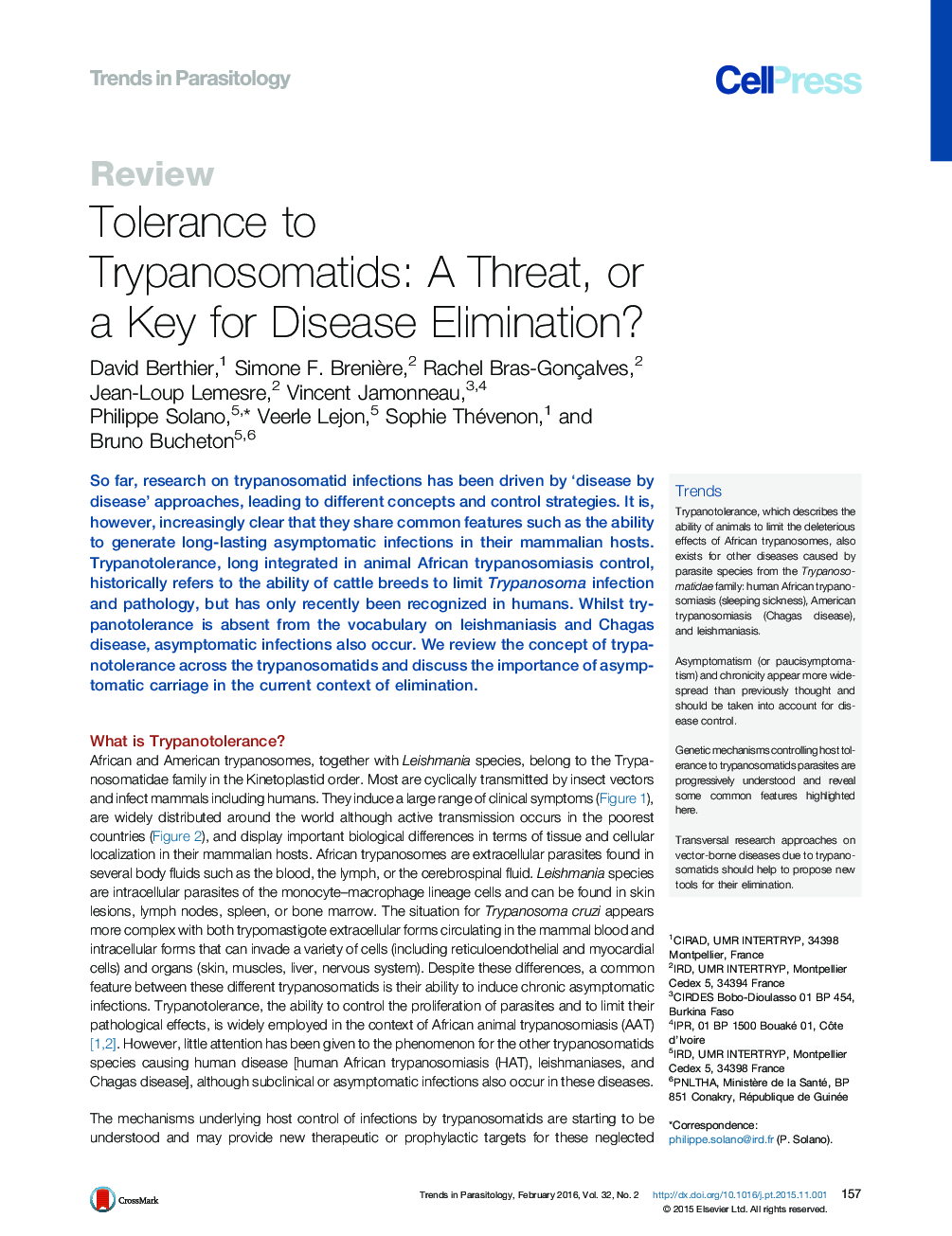| Article ID | Journal | Published Year | Pages | File Type |
|---|---|---|---|---|
| 3422996 | Trends in Parasitology | 2016 | 12 Pages |
So far, research on trypanosomatid infections has been driven by ‘disease by disease’ approaches, leading to different concepts and control strategies. It is, however, increasingly clear that they share common features such as the ability to generate long-lasting asymptomatic infections in their mammalian hosts. Trypanotolerance, long integrated in animal African trypanosomiasis control, historically refers to the ability of cattle breeds to limit Trypanosoma infection and pathology, but has only recently been recognized in humans. Whilst trypanotolerance is absent from the vocabulary on leishmaniasis and Chagas disease, asymptomatic infections also occur. We review the concept of trypanotolerance across the trypanosomatids and discuss the importance of asymptomatic carriage in the current context of elimination.
TrendsTrypanotolerance, which describes the ability of animals to limit the deleterious effects of African trypanosomes, also exists for other diseases caused by parasite species from the Trypanosomatidae family: human African trypanosomiasis (sleeping sickness), American trypanosomiasis (Chagas disease), and leishmaniasis.Asymptomatism (or paucisymptomatism) and chronicity appear more widespread than previously thought and should be taken into account for disease control.Genetic mechanisms controlling host tolerance to trypanosomatids parasites are progressively understood and reveal some common features highlighted here.Transversal research approaches on vector-borne diseases due to trypanosomatids should help to propose new tools for their elimination.
